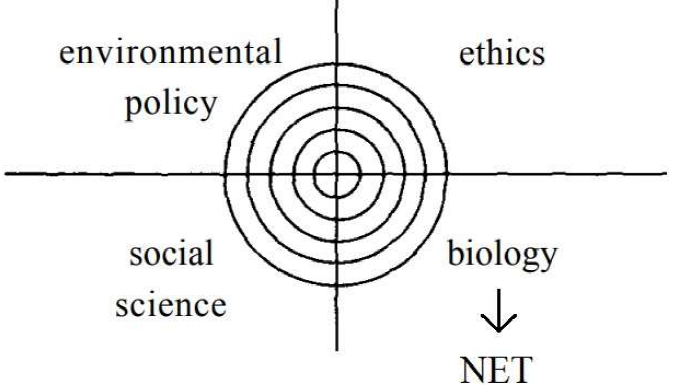
Asia Pacific Academy of Science Pte. Ltd. (APACSCI) specializes in international journal publishing. APACSCI adopts the open access publishing model and provides an important communication bridge for academic groups whose interest fields include engineering, technology, medicine, computer, mathematics, agriculture and forestry, and environment.

Corporate legal responsibility in the context of environmental sustainability and corporate governance
Vol 5, Issue 2, 2025
Download PDF
Abstract
The research underscores the pivotal role of corporate governance in analyzing corporate legal responsibility within the context of corporate governance and environmental sustainability. The increasing societal awareness about climate change and social equity has compelled companies to scrutinize their operations’ environmental and social impacts. These corporate legal responsibilities encompass adherence to environmental regulations, human rights, and labor practices. The research methodology is a comprehensive literature study, aligning with the research context. The findings underscore that compliance with legal responsibilities forms the bedrock of sustainable business practices. The analysis culminates in the assertion that robust corporate governance plays a pivotal role in guiding companies to not only meet existing environmental and social regulations but also integrate sustainability considerations into their corporate culture. The potential consequences of non-compliance are severe, including reputational damage, legal penalties, and environmental and social harm. This triumph is evident in the enhanced transparency, accountability, and environmental and social performance.
Keywords
References
1. McKinnon A. Environmental sustainability. In: McKinnon A, Cullinane S, Browne M, Whiteing A (editors). Green logistics: Improving the environmental sustainability of logistics. Kogan Page; 2010
2. Vezzoli C, Manzini E. Design for environmental sustainability. Springer; 2008. p. 4.
3. Ögmundarson Ó, Herrgård MJ, Forster J, et al. Addressing environmental sustainability of biochemicals. Nature Sustainability. 2020; 3(3): 167–174.
4. Sutton P. A perspective on environmental sustainability: Paper on the Victorian Commissioner for Environmental Sustainability. Available online: https://www.donboscogozo.org/images/pdfs/energy/A-Perspective-on-Environmental-Sustainability.pdf (accessed on 15 March 2025).
5. Sarkis J, Zhu Q. Environmental sustainability and production: Taking the road less traveled. International Journal of Production Research. 2018; 56(1–2): 743–759
6. Dong Y, Hauschild MZ. Indicators for environmental sustainability. Procedia CIRP. 2017; 61: 697–702.
7. Ekins P. Environmental sustainability: From environmental valuation to the sustainability gap. Progress in Physical Geography. 2011; 35(5): 629–651.
8. Oláh J, Aburumman N, Popp J, et al. Impact of Industry 4.0 on environmental sustainability. Sustainability. 2020; 12(11): 4674.
9. Adedoyin FF, Alola AA, Bekun FV. An assessment of environmental sustainability corridor: The role of economic expansion and research and development in EU countries. Science of The Total Environment. 2020; 713: 136726.
10. Fowler L. Assessing the framework of policy outcomes: The case of the US Clean Air Act and Clean Water Act. Journal of Environmental Assessment Policy and Management. 2014; 16(04): 1450034.
11. GRI, G. R. I. About GRI. World Bank; 2014. https://documents1.worldbank.org/curated/en/112641467999975693/pdf/100344-WP-GRI-Annex-10-2-14-Box393222B-PUBLIC.pdf.
12. Hedberg CJ, Von Malmborg F. The global reporting initiative and corporate sustainability reporting in Swedish companies. Corporate Social Responsibility and Environmental Management. 2003; 10(3): 153–164.
13. Bazeley P. Qualitative data analysis: Practical strategies. Sage; 2013.
14. Linos K, Carlson M. Qualitative methods for law review writing. University of Chicago Law Review. 2017; 84: 213.
15. Damgaard T, Freytag PV, Darmer P. Qualitative methods in business studies. Emerald Group Publishing Limited; 2001.
16. Pathak V, Jena B, Kalra S. Qualitative research. Perspectives in Clinical Research. 2013; 4(3).
17. Banks TL, Banks FZ. Corporate legal compliance handbook. Wolters Kluwer; 2010.
18. Armour J, Gordon J, Min G. Taking compliance seriously. Yale Journal on Regulation. 2020; 37.
19. Sanchez JB. Business Compliance: Company’s Duties Beyond Legal Goods Protected by Criminal Law. Spanish Perspective (Spanish). Derecho Penal y Criminologia. 2020; 41(111): 13.
20. Orozco D. A systems theory of compliance law. University of Pennsylvania Journal of Business Law. 2019; 22(1): 244.
21. Thottoli MM. A study on listed companies’ compliance with value-added tax: the evolving role of compliance officer in Oman. Public Administration and Policy. 2022; 25(1): 89–98.
22. Garrett BL, Mitchell G. Testing compliance. Law and Contemporary Problems. 2020; 83: 47.
23. Wang L, Xie Z, Zhang H, et al. Corporate compliance capability of EMNEs: A prerequisite for overcoming the liability of emergingness in advanced economies. International Journal of Emerging Markets. 2023; 18(10): 3486–3505.
24. Jumde A. The law on CSR in India: An analysis of its compliance by companies through corporate disclosures. Journal of Corporate Law Studies. 2021; 21(1): 253–282.
25. Jipescu-Munteanu C. Corporate Compliance and Ethics Challenges: An European Perspective. In: Routledge Handbook of Risk Management and the Law. Routledge; 2022. pp. 236–243
26. Scherer AG, Voegtlin C. Corporate governance for responsible innovation: Approaches to corporate governance and their implications for sustainable development. Academy of Management Perspectives. 2020; 34(2): 182–208.
27. Solomon J. Corporate governance and accountability. John Wiley & Sons; 2020.
28. Al-Gamrh B, Ku Ismail KNI, Ahsan T, Alquhaif A. Investment opportunities, corporate governance quality, and firm performance in the UAE. Journal of Accounting in Emerging Economies. 2020; 10(2): 261–276.
29. Puni A, Anlesinya A. Corporate governance mechanisms and firm performance in a developing country. International Journal of Law and Management. 2020; 62(2): 147–169.
30. Almagtome A, Khaghaany M, Önce S. Corporate governance quality, stakeholders’ pressure, and sustainable development: An integrated approach. International Journal of Mathematical Engineering and Management Sciences. 2020; 5(6).
31. Al-Ahdal WM, Alsamhi MH, Tabash MI, Farhan NH. The impact of corporate governance on financial performance of Indian and GCC listed firms: An empirical investigation. Research in International Business and Finance. 2020; 51: 101083.
32. Cuesta-Valiño P, Gutiérrez-Rodríguez P, Ravina Ripoll R. Guest editorial: Happiness and corporate social responsibility: The role of organizational culture and consumers in a sustainable economy. Management Decision. 2024; 62(2): 373–380.
33. Volchek R, Moskaliuk H, Halan L, Dancheva O. Implementation of Corporate Social Responsibility in the Context of Integration with the Enterprise Management Information System. Scientific Bulletin of National Mining University. 2024; (1).
34. Rashid M, Iqbal A, Sajid W. A Critical Analysis of Corporate Social Responsibility Index: A Systematic Literature Review. Journal for Social Science Archives. 2024; 2(1): 86–107.
35. Kumar A, Snehvrat S, Kumari P, et al. A corporate social responsibility (CSR)-led competitiveness framework through a bibliometric analysis (2001–2023). Journal of Asia Business Studies. 2024; 18(3): 737–766.
36. Ganesh MK, Venugopal B. Challenges, Practice and Impact of Corporate Social Responsibility on Sustainable Development of Environment and Society. Revista De Gestão Social E Ambiental. 2024; 18(1): e4885–e4885.
37. Aguilera RV, Cuervo‐Cazurra A. Codes of good governance. Corporate governance: An international review. 2009; 17(3): 376–387.
38. Bauwhede HV. On the relation between corporate governance compliance and operating performance. Accounting and Business Research. 2009; 39(5): 497–513.
39. Sawmar AA, Mohammed MO. Enhancing zakat compliance through good governance: A conceptual framework. ISRA International Journal of Islamic Finance. 2021; 13(1): 136–154.
40. Arjoon S. Virtues, compliance, and integrity: A corporate governance perspective. In: Handbook of Research on Teaching Ethics in Business and Management Education. Springer; 2017. pp. 995–1002.
41. Zattoni A, Cuomo F. Why adopt codes of good governance? A comparison of institutional and efficiency perspectives. Corporate governance: An international review. 2008; 16(1): 1–15.
42. Griffith SJ. Corporate governance in an era of compliance. William & Mary Law Review. 2016; 57.
Supporting Agencies
Copyright (c) 2025 Author(s)
License URL: https://creativecommons.org/licenses/by/4.0/

This site is licensed under a Creative Commons Attribution 4.0 International License (CC BY 4.0).

University of Lapland, Finland

Yaroslav Mudryi National Law University, Ukraine
-
-
-
EBSCO
-
HEINONLINE
-
Crossref
-
Publons
-
ROAD
-
WorldCat
-
J-Gate
-
Scilit
-
EuroPub
-
SSRN
-
Index of Copernicus
-
CiteFactor
-
Dimensions
-
DRJI
-
Zenodo
-
TrendMD
-
OpenAIRE
-
-

